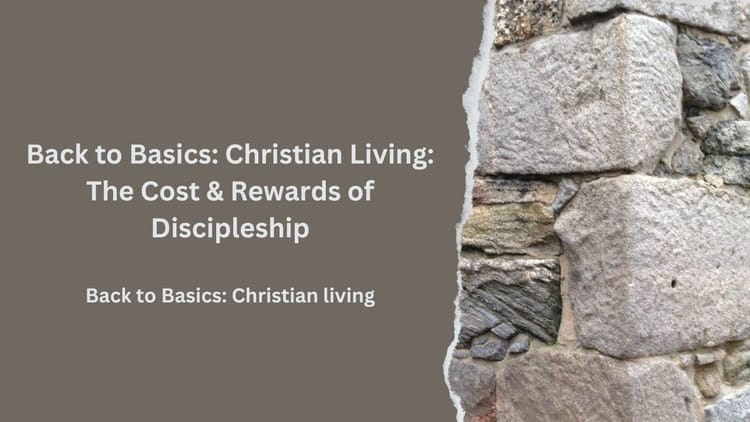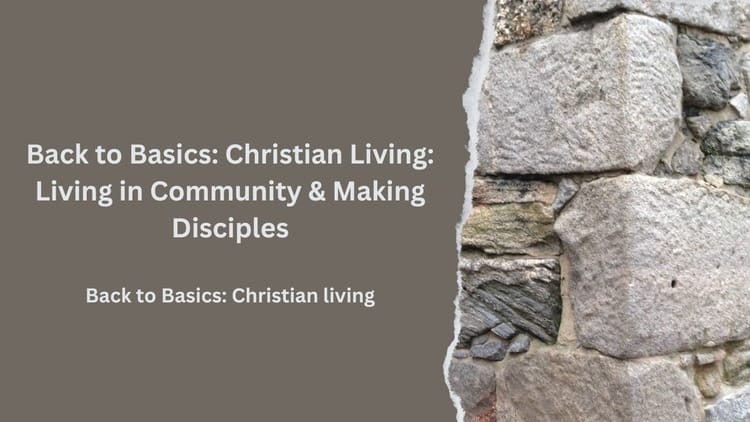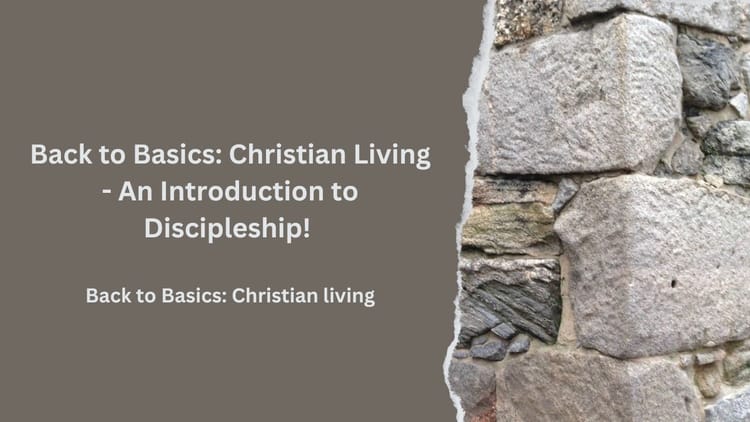Back to Basics: Be Doers Not & Hearers Only!

The Importance of Faith in Christianity!
In the journey of Christian faith, we often encounter a profound yet challenging truth: genuine faith requires more than passive reception—it demands active application. As we navigate our spiritual walk, the distinction between merely hearing God's Word and actively living it out becomes increasingly significant. This principle, emphasized throughout Scripture, calls us to examine not just what we believe, but how those beliefs manifest in our daily lives.
The apostle Paul establishes a fundamental truth in Romans: "So then faith cometh by hearing, and hearing by the word of God" [Romans 10:17 KJV]. This verse reminds us that our faith journey begins with exposure to God's Word. Through reading, studying, and listening to Scripture, we develop the foundation upon which our faith is built. The Word of God serves as the fertile soil in which the seeds of our faith are planted.
However, James offers a complementary perspective that enriches our understanding of faith. He challenges believers to move beyond passive reception: "But be ye doers of the word, and not hearers only, deceiving your own selves" [James 1:22 KJV]. This admonition reveals a sobering reality—we can easily deceive ourselves by mistaking biblical knowledge for spiritual maturity. True faith, James suggests, manifests itself in tangible actions that align with God's revealed truth.
To illustrate this point, James employs a powerful metaphor: "For if any be a hearer of the word, and not a doer, he is like unto a man beholding his natural face in a glass: For he beholdeth himself, and goeth his way, and straightway forgetteth what manner of man he was" [James 1:23-24 KJV]. Like a person who glances at their reflection only to immediately forget what they saw, we risk becoming spiritual amnesiacs—absorbing truth momentarily without allowing it to transform our character and conduct.
The contrast to this forgetful hearer is clear: "But whoso looketh into the perfect law of liberty, and continueth therein, he being not a forgetful hearer, but a doer of the work, this man shall be blessed in his deed" [James 1:25 KJV]. The one who not only examines God's Word but persistently applies it experiences the blessing that comes from obedience. This "perfect law of liberty" paradoxically frees us through its constraints, much like riverbanks channel water's flow, directing our lives toward God's intended purpose.
For our faith to flourish, James instructs us to "lay apart all filthiness and superfluity of naughtiness, and receive with meekness the engrafted word, which is able to save your souls" [James 1:21 KJV]. This preparation of the heart involves both removal and reception—setting aside worldly influences that hinder spiritual growth while humbly embracing the life-giving Word that transforms us from within.
Throughout Scripture, we find examples of faith expressed through action. Abraham's willingness to sacrifice Isaac demonstrated his trust in God's promises: "Was not Abraham our father justified by works, when he had offered Isaac his son upon the altar? Seest thou how faith wrought with his works, and by works was faith made perfect?" [James 2:21-22 KJV]. His faith wasn't merely intellectual assent but was "made perfect" through his obedience.
Similarly, Rahab's protection of Israelite spies evidenced her faith: "Likewise also was not Rahab the harlot justified by works, when she had received the messengers, and had sent them out another way?" [James 2:25 KJV]. Her actions aligned with her newfound belief in Israel's God, demonstrating faith's practical expression.
James delivers perhaps his most direct statement on this subject when he declares: "For as the body without the spirit is dead, so faith without works is dead also" [James 2:26 KJV]. This powerful analogy underscores that faith devoid of corresponding action is as lifeless as a body without breath. True faith inevitably produces fruit—not as a means of earning salvation, but as evidence of its genuine presence.
Jesus himself emphasized this principle in his teachings: "Not everyone that saith unto me, Lord, Lord, shall enter into the kingdom of heaven; but he that doeth the will of my Father which is in heaven" [Matthew 7:21 KJV]. Our Lord warned against substituting verbal profession for heart obedience, reminding us that kingdom citizenship manifests in lived faithfulness.
The early church demonstrated this active faith. After Pentecost, believers "continued stedfastly in the apostles' doctrine and fellowship, and in breaking of bread, and in prayers" [Acts 2:42 KJV]. Their faith wasn't confined to doctrinal agreement but expanded into community engagement, worship, and prayer—all practical expressions of their belief.
Paul echoes this sentiment in his letter to Titus: "This is a faithful saying, and these things I will that thou affirm constantly, that they which have believed in God might be careful to maintain good works. These things are good and profitable unto men" [Titus 3:8 KJV]. Here, good works aren't portrayed as salvation's cause but as its proper consequence—the natural outflow of genuine faith.
As we consider the relationship between hearing and doing, we must recognize that both elements are essential. Faith begins with hearing God's Word but finds its fullest expression in faithful obedience. Like a tree that first must receive sunlight and water before producing fruit, our spiritual lives require both reception and response.
The blessings promised to "doers of the word" are manifold. James assures us that such a person "shall be blessed in his deed" [James 1:25 KJV]. This blessing isn't merely future reward but present reality—the joy, peace, and purpose that come from alignment with God's design for our lives.
As we journey forward in faith, let us commit to being not merely hearers but doers of God's Word. May our beliefs translate into behaviours, our convictions into conduct, and our faith into faithful action. For in doing so, we not only experience the blessings promised to the obedient but also reflect more clearly the character of Christ to a watching world.
"Let your light so shine before men, that they may see your good works, and glorify your Father which is in heaven" [Matthew 5:16 KJV].
Key Takeaways:
- Faith begins with hearing: Romans 10:17 KJV teaches that faith comes by hearing the Word of God—making exposure to Scripture essential for spiritual foundation.
- Action must follow knowledge: James 1:22 KJV warns against being hearers only, as this leads to self-deception. True faith manifests in observable actions.
- The mirror analogy: James compares passive hearers to those who look in a mirror and immediately forget what they saw—highlighting how easily we can absorb truth without application.
- Faith without works is dead: James 2:26 KJV establishes that genuine faith inevitably produces corresponding actions, just as a living body has breath.
- Biblical examples demonstrate active faith: Abraham's willingness to sacrifice Isaac and Rahab's protection of the spies show faith expressed through obedience.
- Profession without obedience is insufficient: Jesus taught in Matthew 7:21 KJV that merely calling Him "Lord" without doing God's will falls short of kingdom requirements.
- Doers receive blessing: Those who not only look into God's "perfect law of liberty" but continue in it receive blessing in their actions, James 1:25 KJV.





